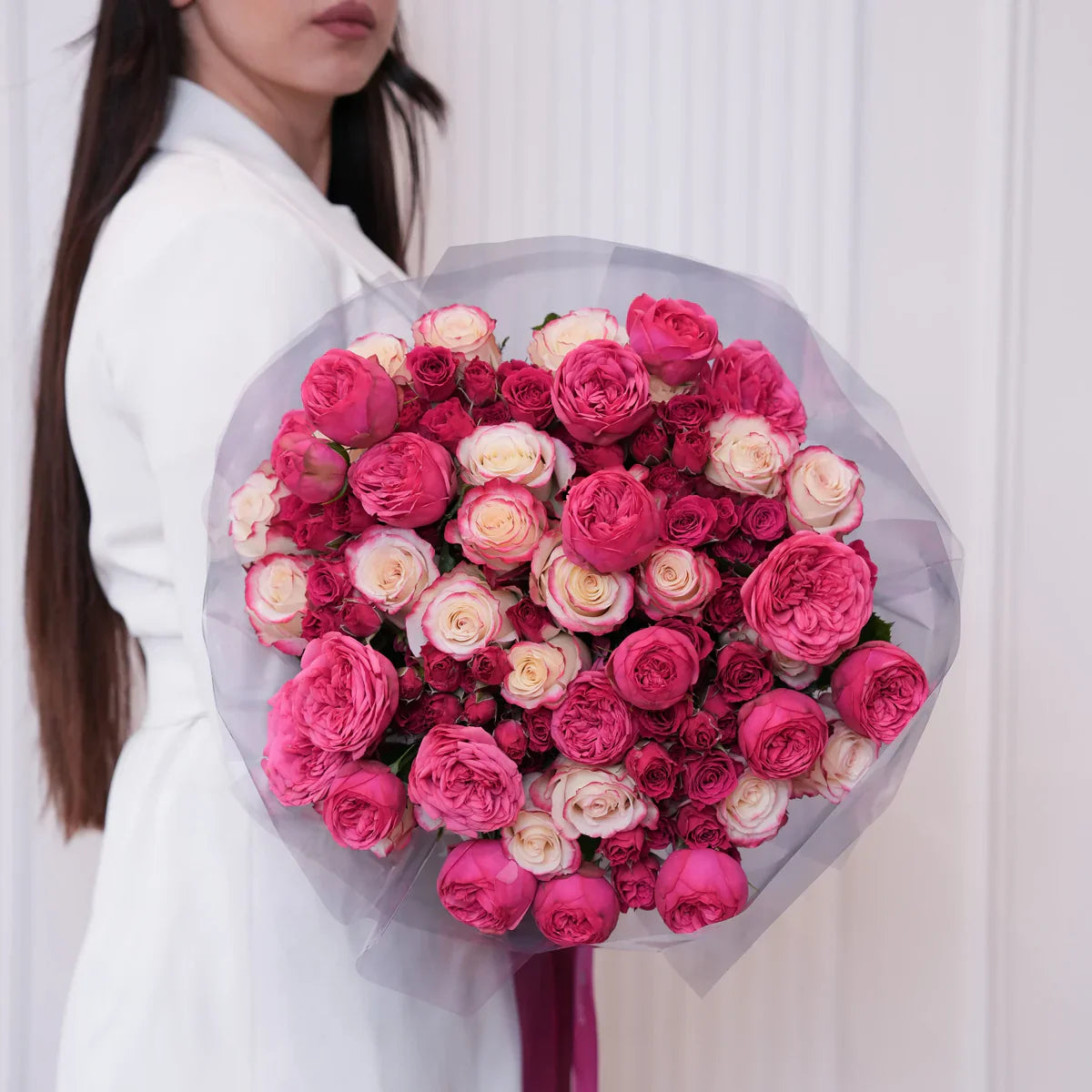Are Flowers Sentient? Exploring Plant Intelligence
For centuries, humans have admired flowers for their beauty, fragrance, and symbolism. But recent scientific discussions raise an intriguing question: Are flowers sentient? Do they feel, sense, or communicate in ways we’ve yet to fully understand?
In this article, we’ll explore the cutting edge of plant intelligence, from how flowers respond to their environment to the controversial idea of plant "consciousness." Whether you're a curious gardener, a philosopher at heart, or simply a lover of blooms, this exploration might just change the way you see a simple bouquet.
And if you're inspired to surround yourself with botanical wonders after reading, browse the vibrant variety of arrangements at Ecoroses LA - where flowers speak volumes without saying a word.
🌿 What Is Sentience?
Sentience typically refers to the capacity to have subjective experiences, like pain or pleasure. In animals, it's linked to the nervous system, brain activity, and consciousness.
But plants don’t have brains, nerves, or eyes, so can they be sentient?
While most scientists would say no, plants have evolved incredibly sophisticated sensory systems-some that rival animal abilities in complexity and precision. This has given rise to the field of plant neurobiology, a controversial but growing area of research.
🌸 Can Flowers Sense Their Environment?
Yes, and in surprisingly complex ways.
Flowers and plants can:
-
Detect light and orient toward it (phototropism)
-
Respond to gravity and moisture
-
React to touch and vibration (thigmotropism)
-
Sense nearby plants or danger
-
“Smell” chemicals released by other plants
-
Track time via circadian rhythms
🧪 Example: Mimosa pudica
This sensitive plant famously folds its leaves when touched. While not technically a flower, it's one of the most obvious demonstrations of “reactive intelligence.”
🌼 Floral Communication: Do Flowers Talk?
In a way-yes. Flowers and plants use a form of chemical language.
🌬️ VOCs (Volatile Organic Compounds):
These are scent molecules flowers release. They serve several functions:
-
Attract pollinators (bees, butterflies, hummingbirds)
-
Deter herbivores
-
Warn neighboring plants of danger (such as insect attack)
Studies have shown that nearby plants can “eavesdrop” on VOCs and activate their own defense genes in anticipation.
It’s a form of awareness-even if not consciousness in the human sense.
🧠 Is There a "Plant Brain"?
Plants don’t have brains, but they do have something similar to a nervous network.
-
Electrical signaling exists in plants, traveling via their phloem tissues
-
They use calcium ions to trigger specific responses-much like neurons
-
Root tips have been described as having a “brain-like” function by researchers like Stefano Mancuso
💡 Root Networks = Social Networks?
Some plant root systems are able to identify kin, share nutrients, and even withhold resources from competitors.
This brings up questions of memory, decision-making, and social interaction-attributes usually reserved for animals.
🌻 Do Flowers Feel Pain?
This remains highly debated.
Without a brain or pain receptors, flowers likely don’t feel pain as animals do. However, plants do respond to damage and stress:
-
They emit VOCs when cut, chewed, or harmed
-
Some alter their chemical composition to make themselves less appetizing
-
Others may wilt or drop leaves as a survival mechanism
While these reactions don’t imply “suffering,” they show awareness and adaptability.
🌼 Can Flowers Remember?
Some studies suggest a primitive form of memory:
-
Mimosa pudica stops reacting to repeated non-threatening touches-demonstrating habituation, a basic type of learning.
-
Plants exposed to a certain stimulus (like drought) may respond more efficiently the next time, indicating a memory-like function.
This suggests flowers and plants can learn, adapt, and even predict patterns in their environment.
🌸 The Philosophy of Flower Sentience
Ancient cultures long believed flowers were alive in more ways than biology could explain:
-
In Shintoism, everything in nature-including flowers-has a spirit or energy
-
Hindus and Buddhists see certain blooms as sacred or enlightened
-
Victorian floriography assigned flowers symbolic “emotions”
Today, science still can’t fully explain consciousness in humans-so ruling it out in flowers might be premature.
Could flowers be experiencing the world in a way utterly alien to us?
🧬 The Future of Plant Intelligence Research
Researchers are investigating:
-
Time-lapse tracking of flowers under different stimuli
-
Electrophysiological monitoring of floral signals
-
How environmental cues affect petal movements or nectar production
-
AI and robotics mimicking plant decision-making
The implications are vast-not just for science, but for ethics, agriculture, and design.
Could your bouquet be more alive than you think?
💐 Practical Takeaways for Flower Lovers
Whether you believe flowers are sentient or not, these facts can help you appreciate and care for them better:
-
Speak gently: Some studies suggest sound waves may influence plant growth
-
Don’t crowd arrangements-flowers can react to each other’s presence
-
Rotate bouquets to mimic natural light changes
-
Choose ethically sourced flowers if you value plant welfare
-
Keep them hydrated and cool-they react to stress just like we do
And when you gift flowers, consider the unspoken language behind the petals.
🌺 The Magic of Flowers in Modern Life
Flowers continue to enchant us-not just through scent and color, but through silent mysteries.
-
They comfort during grief
-
Celebrate love and union
-
Mark new beginnings
-
Represent memory, emotion, and growth
Whether or not they’re sentient, flowers undeniably affect human consciousness in ways we still don’t fully understand.
💐 Final Thoughts: Feeling the Bloom
While we can’t say for sure that flowers feel, think, or experience the world, the evidence shows they’re far more responsive and intelligent than once believed. In the delicate structure of a rose or the synchronized bloom of a sunflower field, there lies a kind of quiet wisdom.
Next time you admire a bouquet, don’t just see it—listen to what it might be saying.
Feeling inspired? Bring the quiet brilliance of blooms into your space with handcrafted, ethically curated florals from Ecoroses LA. These are flowers that speak, if you know how to hear them.


